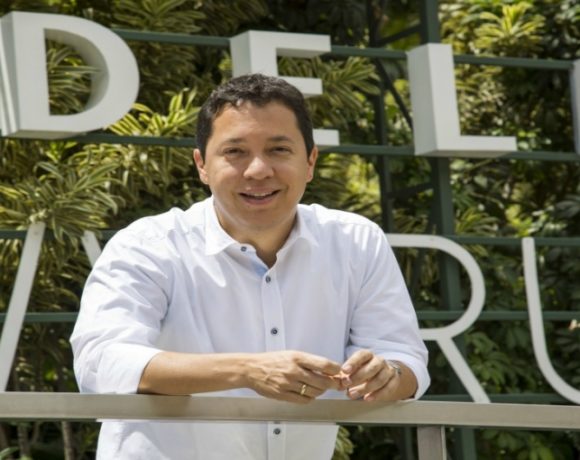Endeavor: Medellin’s Emerging Tech Sector Needs More Angel Investors

A new report on Medellin’s emerging information technology (IT) sector from global entrepreneur-development organization Endeavor finds that Medellin needs more “angel investors” to spur more IT start-ups.
The report — developed in collaboration with Medellin’s government-funded “Ruta N” IT business development promoter — finds that just half of the 10 largest technology companies in Medellin have supported IT start-ups
“Comparing the technology industry Medellin with the technology industry cities such as New York and Buenos Aires, it is evident that [Medellin] still has a small number of angel investors who invest in technology startups,” according to the report.
Approximately 30 local IT companies surveyed for the report indicated that they had linked-up with angel investors.
The study shows that “in recent years, most technological enterprises in Medellin are startups or enterprises at very early stages. To the extent that these technological ventures are maturing and manage to reach more advanced stages of growth, offering additional support to existing incubators or accelerators is required.
“The most successful technology entrepreneurs need to donate their time and expertise to provide mentoring and investment for less-prepared entrepreneurs. They need to serve as role models and empower their employees to promote and establish new companies,” according to the report.
While shortfalls in mentoring and angel-investor funding mean that “technological entrepreneurship in Medellin is still small and incipient,” nevertheless “its future is prosperous,” according to the study.
The six-month study surveyed more than 200 local entrepreneurs, according to Endeavor.
“High-impact entrepreneurship can be successful in unexpected places, as evidenced in Medellin,” the organization concluded.
One example of a relatively successful Medellin-based IT start-up is Ubidots, “which is already generating a significant impact on the Medellin technology sector,” according to the report.
“After going through the ‘MassChallenge’ program in Boston in 2013, the Ubidots founders returned to Colombia to develop their product,” according to the report.
Ubidots is now working at the “AtomHouse” IT shared-working space in Medellin, operated by SocialAtom Group, “one of the most important players in the development of technology start-ups in the city,” according to the report.
“As a service company in the cloud that focuses upon collecting and interpreting data from sensors, Ubidots is well positioned in the forefront of a subsector that has high growth potential.
“Founders Agustin Pelaez, Sergio Correa, Juan Pablo Velasquez, Jorge Cardona and Gustavo Angulo are not waiting for your company to grow to start giving back their knowledge and experience with the entrepreneurial community. They are already closely involved in the Medellin technology ecosystem.
“Today, they are mentors to other entrepreneurs such as Bankity, IDlink and Juanregala. Several of the entrepreneurs surveyed in this study identified the founders of Ubidots as their role models — a great achievement for a company in a nascent industry,” according to the report.
Critical View
However, several other crucial obstacles stand in the way of greater development of IT start-ups here, according to Medellin-based Kogi Mobile, one of the more successful IT start-ups here (see October 27, 2015, Medellin Herald , “Medellin Developing IT Start-ups, but Sharper Focus Needed: Expert Advice.”)
Asked to comment on the Endeavor report, Kogi president Nick Aldridge told Medellin Herald the following:
“There are number of themes and challenges which are not really highlighted in the [Endeavor report]: There is no ‘smart’ [angel investor] money as there is no ‘smart’ here. Unfortunately in Medellin and in general in Colombia there are no examples of [outstanding] success in the sectors that they are talking about.
“So when you are looking for investors who have know-how and experience, they just do not exist. The examples of incubators and investors — some mentioned here and some others who are not — are very weak.
“Governments are normally the worst people to try to get involved in private enterprise. This is amplified in Colombia where you have ingrained corruption throughout all of the institutions of Colombia. So this fails on two fronts.
“If the [anti-corruption] controls are too loose, then the local wealthy people who play the system every day for free money will drain the resources. This happened with [Colombia government-funded IT promoter] Innpulsa when they first started. Then if you swing the other way and put too many controls in, it is too restrictive for anyone to have a free reign that you need to run a business.
“The [IT development sector] money has to be private. Making more schemes where the government is putting money in will only go one of those two ways, and will not result in success. We have seen this also with Ruta N, now seven years old without any notable success.
“Really to kick start an [IT start-up] community, you need the best foreign talent to come and run their start-ups here. With the recent [Colombia] wealth-tax laws and the underlying heavy tax burden on companies and individuals that take dividends from those companies, Colombia is a very unattractive place for a capitalist entrepreneur to come.
“I personally no longer invest in Colombia due to the recent changes that are anti-investment and with the experience of five years of working here with the Colombian tax system.
“You also need to look at the resources here. They are very limited. And with Ruta N’s strategy to attract large outsourcers, this drains the talent pool even more.
“Also if you are wealthy individual, the last place on earth you want to come and live is Colombia, as now they want your world-wide holdings in your tax return. So why would any successful, wealthy, informed entrepreneur make Colombia their home and a place to live and work to help others develop their businesses?
“Nobody would mind if the [Colombian government] only taxed on income, but they also tax on just having made money in the past. So a new way of looking at double taxation is to pay in your country-of-origin taxes on the wealth you generated, and then come to Colombia and get taxed every year a few percentage points of that wealth — even though you didn’t generate or use it in Colombia! It’s a socialist utopia, which is about as unattractive for a capitalist mind as it could be outside of Cuba and North Korea.
“I don’t believe the failure in the [local IT development] system is [lack of] smart capital. I believe it is in the lack of local education, the culture, the lack of local marketplace, the lack of experience of those trying to start businesses and the misplaced focus of Ruta N and other institutions.
“I see very little focus of Medellin or Colombia playing to their strengths, which would be to look at advances in agriculture, food, tourism, etcetera. All of these areas are much more attractive for investment than the [IT start-up] proposals that are currently in the market, often based on social media.
“I see very little in the way of innovation related to Colombian nuances. You see many copy-cat [IT] businesses, some of which are successful to some degree such as Domicilios and Tappsi. But those in themselves are held back by lack of local talent to take them truly onto the international stage and roll out globally,” Aldridge concluded.
















